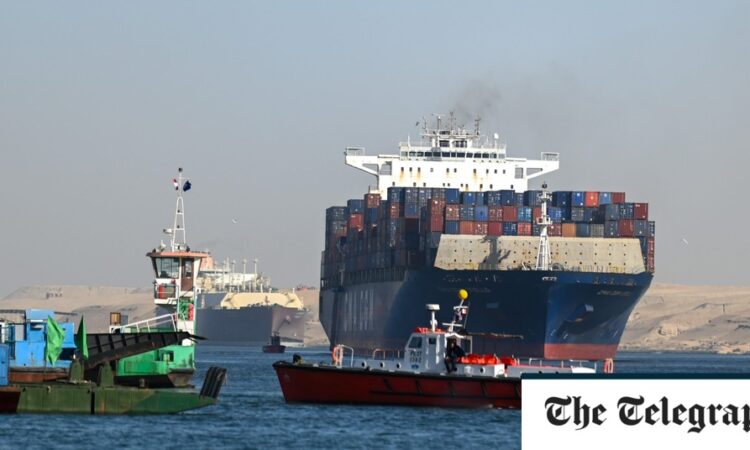
A surge in shipping prices triggered by chaos in the Red Sea poses a threat to interest rates, the Governor of the Bank of England has warned.
Andrew Bailey said the impact from ships having to reroute from the Suez Canal around South Africa was likely to become an issue for monetary policy.
Iran-backed Houthi rebels have been attacking ships in the Bab El-Mandab strait, off the coast of Yemen, which leads to the Suez Canal, in retaliation to Israel’s war in Gaza.
Speaking in front of the Treasury Select Committee (TSC) on Wednesday, Mr Bailey said: “As best we can tell from the monitoring, shipping traffic is being affected and has been rerouted and that will increase shipping prices and shipping costs.
“I think initially that will be an issue in the monetary policy world.”
The chief executive of Sainsbury’s said on Wednesday it was in regular contact with Downing Street amid concerns over disruption to supplies which could push up prices.
Simon Roberts said: “It’s an issue for many commercial businesses, and therefore an important issue that the Government would want to be involved with.
“We’re on regular calls there to make sure that the latest intel and understanding is understood.”
If inflation stays higher for longer, it will make it harder for the Bank of England to cut interest rates.
Since December 2021, the Bank has raised interest rates from a record low of 0.1pc to a 15-year high of 5.25pc to try to tame runaway inflation.
The outlook has been improving rapidly. The consumer prices index (CPI) has now cooled from a peak of 11.1pc to 3.9pc in November.






